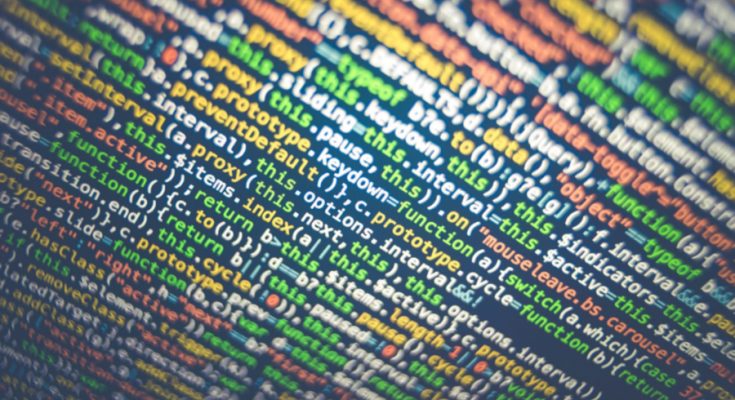eDiscovery, also known as electronic discovery, is the process of identifying, collecting, and preserving electronically stored information (ESI) for investigations and several legal proceedings. eDiscovery has become an essential part of litigation and legal compliance as most data is stored digitally. Digital forensic experts play a crucial role in the process of eDiscovery.
Before the growth in digital data storage, legal discovery was used to uncover physical documents. This has changed as more and more documents are being stored and shared online. The documents in eDiscovery include emails, social media posts, databases, audio, and video files, among other types of digital data.
Stages Of eDiscovery
eDiscovery takes place in stages that include:
Identification
The process of identifying the key custodians of information, i.e., the sources of the electronic data, is the first step.
Preservation
Once the resource has been discovered, the next step is protecting the data from alteration or deletion. This is why it is important to secure the data by issuing a legal notice to the relevant parties to preserve the data for legal proceedings. This makes the relevant parties liable if something happens to that data.
Collection
The next step of the eDiscovery process is to gather as much data as possible from different sources, such as computers and mobile phones. This is where cyber forensic experts help copy files and export data from different sources.
Processing
The collected data is now processed to find metadata and also to secure the relevant information. This step will reduce the volume of the data so that only the important stuff is left for legal proceedings.
Review
The legal professional at this stage will process and review the reduced volume of data to assess whether or not it impacts the case. This stage requires the use of specialized software to filter important documents and tag the crucial bits and pieces of information.
Analysis
The next step of the eDiscovery process is the extraction of information from the files that will help support the case or inform the jury regarding the key elements of the case. This is also the part where you build evidence and establish timelines to be presented later in the trial.
Production
The next step in the eDiscovery process is using compelling information by presenting it. This includes using relevant information and responsive documents to the parties to create a narrative that can be presented to the regulatory authorities. This is important because the data is converted into a specific format that can be used in a court of law.
It is important to note that the process of eDiscovery is quite complex, and there is a need for both legal and technical experts on the project. Law firms and organizations use the services of cyber forensic experts who use specialized software to employ professionals with the knowledge they need regarding governance, data privacy, and other elements of litigation. The electronic evidence must be managed efficiently by the experts.
File Extraction and Conversion In eDiscovery

It’s important to use the services of cyber forensic experts in the process of file conversion and extraction during the eDiscovery process. This is a crucial part of the processing stage.
File Conversion
File formats such as emails, documents, spreadsheets, and presentations will come up during eDiscovery. These formats are specific to the application that may have been used to facilitate the analysis and review process. The files may be converted to standardize the process and ensure that the formats can be used across the different departments during the litigation process.
During the conversion process, the extraction of embedded items is also a consideration, as this makes the analysis much easier.
Data Extraction
Data extraction is the process of identifying and capturing information from the files that have been converted to ensure that the metadata is accessed. This type of information may include creation dates, author information, and even the file path. This is relevant to the process of analysis.
Text Extraction
To extract textual content from files, documents such as email and email attachments will be processed separately so that no necessary information is missed.
Embedded Data
Embedded data can be extracted from files using specialized software. This includes comments, tracked changes, as well as hidden text and annotations that can prove to be valuable in the legal proceedings.
Structured Data
Extracting structured data from databases or spreadsheets, including tables, columns, rows, and formulas. This enables the analysis of structured data alongside other documents during the eDiscovery process.
Communication Threads
Communication threads can be reconstructed in chronological order to make more sense of the contents of the messages and emails, especially for legal proceedings.
In the case of file conversion and extraction, the relevant information must be made accessible and presentable during the review and analysis process. The legal professional involved in collaboration with the cyber forensic experts can convert the large volume of data to support the legal strategy.
How To Streamline the Discovery Process For Legal Professionals

Streamlining the eDiscovery process is quite crucial to legal proceedings. Certain strategies can be adopted alongside technologies that can help manage electronic data effectively. Here are some ways the eDiscovery process can be effectively streamlined.
Planning and Preparation
One of the ways that the process of eDiscovery can be streamlined is by creating a discovery plan that will provide the relevant teams with a plan for eDiscovery. The plan can encompass the goals and timelines to discover data sources and utilize them to the fullest.
Identify Key Custodians and Data Sources
Once a plan has been put in place, the next step is to determine the sources of information. These can include email and cloud storage. This will allow the relevant departments to access the necessary information from different sources.
Early Case Assessment
Early case assessment (ECA) can be used for technology-assisted review (TAR). These techniques allow an analysis of large amounts of data through specialized tools, especially for the eDiscovery process. With ECA, you can identify the necessary documents to assess the potential risk and merits of the case at hand.
This is also a great way to gather the most relevant information by narrowing down the scope of the project and the process and saving time and resources.
Utilize Technology
The eDiscovery process can be streamlined while leveraging the software and platforms for data collection. Specialized tools provide workflow management and improve search capabilities which can be substantial when handling large volumes of data effectively.
Implement eDiscovery Software
eDiscovery software can be used for the data collection, processing, and review of large amounts of data. The use of specialized software can enable legal professionals to better handle cases and efficiently present data.
Automation and Machine Learning
Data automation and machine learning techniques can help automate repetitive tasks in the process of eDiscovery. This pertains to file conversion, data extraction, and deduplication of files. Using these technologies, you can expedite the princess of eDiscovery and reduce human error while enhancing the accuracy of results.
Collaboration and Communication
Another way to improve the eDiscovery process is by fostering collaboration between legal teams and cyber forensic experts. This will proceed with the seamless flow of information, sharing, and tracking data uncovered during the discovery princess.
Establish Clear Protocols
The eDiscovery process can also be streamlined by providing clear guidelines and protocols for communication. This will allow the different departments to have a communication chain of communication and streamline workflows in the process.
Training and Education
Providing training and dedication to the legal teams will ensure that professionals are better prepared for the discovery process. Digital forensic experts ensure that relevant regulations, legal technologies, and best practices guide the process and handle data efficiently.
Regular Evaluation and Improvement
It is also important to stay updated on technological advancements and legal regulations because it allows both legal teams and digital forensic experts to work together to achieve results. Reviewing the evaluation process regularly allows you to streamline the discovery process, reduce human errors as much as possible and manage electronic data much better for legal representation.
The Role Of Cyber Forensic Experts In eDiscovery

The role of cyber forensic experts is crucial when it comes to eDiscovery as it allows them to use their specialized knowledge or skills to handle large volumes of data as digital evidence. Here is how you can better understand the role of cyber forensic experts in the process of eDiscovery.
Data Collection and Preservation
The collection and preservation of electronically stored information (ESI) is crucial to cyber forensic experts. They use data collected from mobile devices, cloud storage, backup systems, and the like for forensic imaging and data alteration.
Ensure The Preservation Of Data Integrity
The help of cyber forensic experts allows you to collect data by preserving forensic methodologies. Following strict protocol is important to maintain the integrity and authenticity of the evidence unearthed from digital channels.
Data Recovery and Reconstruction
Discovering damaged data is part of the cyber forensic expert’s job description. There is a need for recovering files, emails, chats, and more when it comes to digital communication used in legal proceedings.
Reconstruct Data and Timelines
Digital forensic experts help recover timestamps and metadata from information retrieved through file structures. The sequence of events and the like can be used to support a case in a court of law.
Data Analysis and Examination
Cyber forensic experts are involved in the forensic examination of the digital data which has been collected by using a wide range of specialized tools and techniques. Information such as system logs, network traffic, and the like can prove to be quite instrumental in legal proceedings.
Data Validation and Verification
Cyber forensic experts can help authenticate information and this is how the accuracy and reliability of the information can prove instrumental as digital evidence. The source of the information can also be verified to ensure that there is no tampering or manipulation of the data.
Expert Testimony and Reporting
The use of cyber forensic experts in legal proceedings is quite common because they allow you to explain findings and methodologies that are crucial to digital evidence. Their expertise is important in legal processing and for the validity of digital evidence.
Documentation and Reporting
Cyber forensic experts can provide detailed documents to ensure their findings and analysis are presented appropriately in a court of law. The presentation of evidence plays an important role in a court of law, and with a digital forensic expert’s stamp of approval, it can be substantial to the case.
Collaboration With Legal Teams
Cyber forensic experts such as Eclipse Forensics are known for working closely with legal teams and providing their expertise in the forensics department to aid investigations. Eclipse Forensics has years of experience in collecting and analyzing digital evidence, working closely with court officials, and working on high-profile cases. Eclipse Forensics also provides expert consultation, which allows legal teams to formulate better legal strategies and evaluate digital evidence for the better. Their services range from audio forensic services FL tomobile device forensics and more.
Eclipse Forensics provides expert analysis for digital evidence with their specialized knowledge. The analysis of digital evidence in eDiscovery ensures that complex data is maintained and analyzed to support legal proceedings efficiently.
Hire Eclipse Forensic’s cyber forensic expert today.








